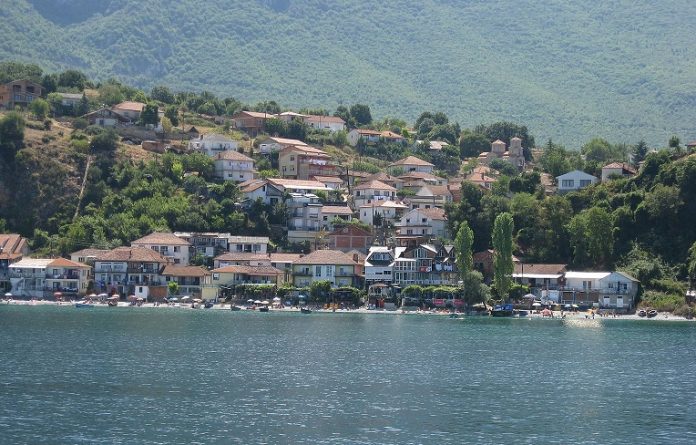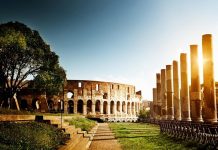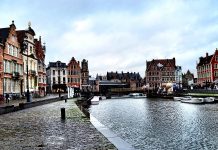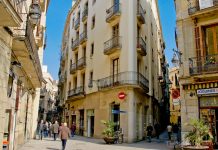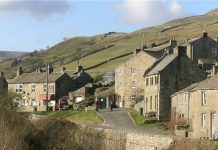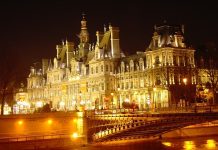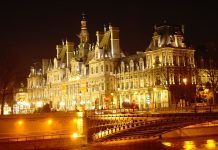Macedonia is a nation located in south-eastern Europe. It borders Bulgaria, Albania, Kosovo, Greece, and Serbia.
Macedonia gained its independence from Yugoslavia in 1991. The nation of Macedonia is a bit larger than the state of Vermont in the United States, and has a total area of 9,781 square miles or 25,333 square kilometres. The Capital of Macedonia is Skopje, which is also Macedonia’s largest city. There are currently six ethnic groups identified in Macedonia: Brsyak, Southern, Miyak, Sturma-mesta, Upper Vardar, and Macedo-Shop.
While some historians say that ancient Macedonians were considered to be descendants of Slavs, most Macedonians would argue this and proclaim themselves to be pure Macedonians, not Serbs, not Greeks, not Slavs and not Bulgarians. These nationalist Macedonians state that their forefathers struggled against the Serbian, Greek, and Bulgarian intruders and fought for an independent and free Macedonia. They point to 2500 years of Macedonian history, and of the Macedonian Nation, claiming ancient Macedonia conquered the Persian Empire and ruled the known world centuries before Rome was a power.
Nearly two thirds of the population consists of ethnic Macedonians. Albanians represent about one quarter of the population and live mostly in Western Macedonia. Smaller groups of Turks, Serbs, Romani (Gypsies), and others make up the rest of the population. The primary language is Macedonian, which has its roots in Europe and India. The language has about twenty different dialects. Most young Macedonians also speak fluent English as well, although multilingualism is more common in the urban areas than in the rural areas. Other languages spoken include Albanian, Turkish, and Roma. The Eastern Orthodox Church claims a little over sixty five per cent of the population as members, with a third of the population claiming to be Muslims. There are also small groups of non-Orthodox Christians.
While historically the traditional culture of Macedonia has been rural, more and more of the population is moving to the urban centres. More than a quarter of the population lives in or near the capital city of Skopje, a bustling and burgeoning economic growth centre of the nation. There are modern apartment complexes currently being developed all over the city to provide housing for the growing ranks of young business people who are flocking to this urban centre looking for both business and social opportunities.
In contrast to the modern twist of the young, traditional architecture can still be found throughout Skopje, especially in the older urban neighbourhoods, where individual single-story homes open into a central courtyard. In the wealthier sections of the city, some homes have second stories with balconies projecting over the streets or over inner courtyards. Some of the urban areas still have open markets with an open bazaar.
Food plays an important role in the daily life of Macedonians, and fine food is also on offer to locals and tourists alike. Evening meals usually start with a appetizer or Meze, and are usually served with a fruit brandy or rakia. The national dish is ‘bean casserole’ or ‘tavche-gravche’. Bread is the basic food and is served with every meal.
For centuries the economy was based on agriculture, but is now becoming more and more industrialized. Among these are beverages, textiles, steel, energy, cement, and food processing. Macedonia also exports much of its products overseas including food, tobacco, beverages, iron, automobile parts, and steel. The agricultural crops produced include grapes, wine, vegetables, milk, tobacco, and eggs.
The country has good natural resources including copper, lead, zinc, low-grade iron ore, chromite, nickel, tungsten, gold, asbestos, silver, timber, arable land, and manganese. Macedonia also imports great deal annually and does trade with Germany, Italy, Greece, Bulgaria, Italy, Turkey and the United Kingdom.
The government of Macedonia is structured under the constitution set in 1991 as amended. The Head of State is the President, who is elected by popular vote for a five year term, and who is eligible for a second term. A Prime Minister heads, and is elected by the Assembly. The Cabinet is also elected by the Assembly.
There are eighty five municipalities in the country. Men and women both work outside the home, but women are still responsible for most of the domestic labour. Higher education is valued and there is good representation of both women and men at institutions of higher learning. While there is equal representation of genders, ethnic minorities are under-represented. The vast majority of those holding university degrees are ethnic Macedonians. Founded in 1949, the University of Skopje is a full university with departments of agriculture, forestry, medicine, pharmacy, civil engineering, veterinary medicine, mechanical engineering, technology and metallurgy, geology, stomatology, natural and mathematical sciences, electro-technical engineering, and mining.
Macedonia also has an active Association of the Sciences and Arts, which was founded in 1960. There are also other learned societies involving pharmacy, medicine, geology, physics, mathematics, veterinary surgery, computers, engineering, agriculture and forestry. There is also a Macedonian Academy of Sciences at Skopje which was founded in 1967. This academy has medical and biological sciences, as well as technical and mathematical departments. There are also institutes of research in natural history, geology, cotton, tobacco, animal breeding, water development, and animal husbandry.
Medical care is modern in this country, with a good network of hospitals and outpatient care. However traditional folk healers who are normally old women, deal with common illnesses such as warts and maladies caused by the ‘evil eye’. These traditional healers are typically found in rural areas and villages.

